General Secretary Tran Phu is an example of loyalty to the country, filial piety to the people, dedicating his whole life to the cause of national liberation with strong will and belief in communist ideals and revolutionary victory.
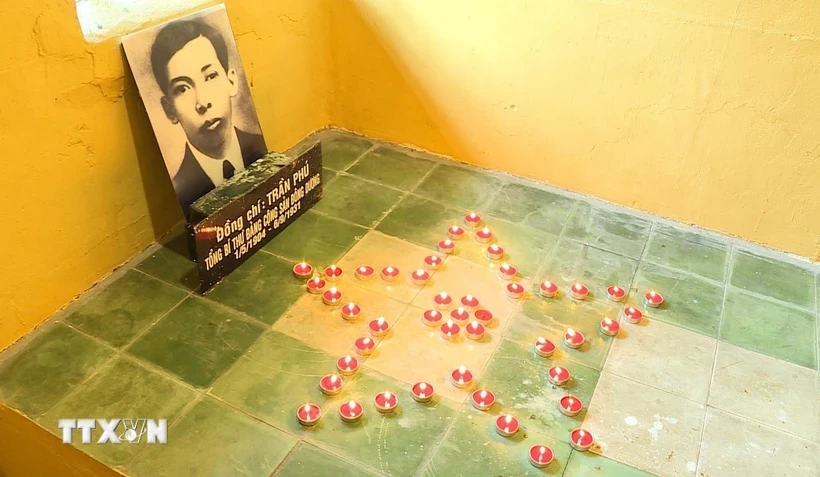
With only 27 years of age, more than 8 years of revolutionary activities, nearly a year in the position of General Secretary (from October 1930 to April 1931), comrade Tran Phu made great and important contributions to the Vietnamese revolutionary cause, especially during the period when the Party was newly born.
The good qualities, love for comrades and fellow countrymen, indomitable spirit before the enemy and the last message of comrade Tran Phu: "Keep up the fighting spirit" always live forever with time, eternal with the revolutionary cause of the nation.
From a patriotic youth to a shrewd and intelligent communist
Comrade Tran Phu, born on May 1, 1904 in An Tho village, An Dan commune, Tuy An district, Phu Yen province; native hometown in Tung Anh commune, Duc Tho district, Ha Tinh province.
Comrade Tran Phu is a typical example of a generation of patriotic youth, thirsting for ideals and full of revolutionary enthusiasm. Born into a family of patriotic scholars, Tran Phu witnessed with his own eyes the suffering and injustice of the working class under the oppression and exploitation of the colonial and feudal governments.
The historical, cultural and revolutionary traditions of the homeland have contributed to fostering in young people patriotism and hatred of the enemy, and fostering the will and spirit to learn and strive to find a way to save the country.
During his time studying at Hue National School, Tran Phu made friends with many fellow countrymen with the same aspirations such as Ha Huy Tap, Ha Huy Luong, Tran Van Tang, Ngo Duc Dien...
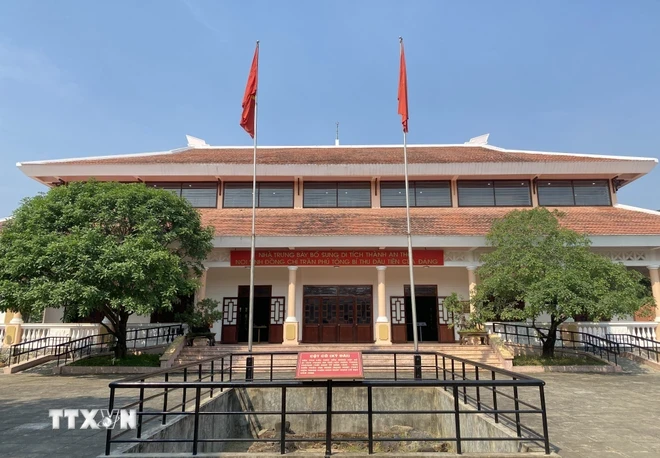
They set up the group "Youth for Progress" to read books together, exchange and help each other in life.
In 1922, after graduating from Hue National School, with the aim of contributing to training a generation of ambitious people who would benefit the people and the country, Tran Phu chose to teach at Cao Xuan Duc Primary School (Vinh city, Nghe An).
With all his enthusiasm, Tran Phu instilled in his students patriotism and pride in the heroic and indomitable fighting tradition of his homeland and people.
During these years, there were also great changes that affected patriotic youth. The influence of the Vietnam Revolutionary Youth Association grew stronger, and he decided to give up teaching to pursue a professional revolutionary career.
The turning point in Tran Phu's revolutionary life was at the end of 1926, when he was sent to Guangzhou (China) to contact the Vietnam Revolutionary Youth Association.
Here, he met Leader Nguyen Ai Quoc and attended a cadre training course taught by him. Nguyen Ai Quoc's lectures at the training course equipped Tran Phu with basic knowledge of the proletarian revolution and the theory of Marxism-Leninism, so that from a young man with patriotic revolutionary thoughts, he changed to a proletarian revolutionary stance.
In January 1927, comrade Tran Phu was sent to study at the Oriental University (Soviet Union). After graduating, in November 1929, he was assigned to return to the country to work as a key cadre of the Party, directly responsible for drafting the Party's Political Platform.
Drafter of the Political Platform of the Communist Party of Vietnam
The October 1930 Political Platform of the Party is an important document of the Party, the basis for the Party to propose policies and strategies throughout the process of fighting to protect the revolutionary government. The Political Platform is the intellectual product of the Central Executive Committee, but bears the personal mark of comrade Tran Phu in his role as the direct drafter.
From the end of 1929, after returning to the country to work, together with comrades in the Party's Provisional Executive Committee, comrade Tran Phu directly lived the life of a miner, bricklayer, cement factory worker... to infiltrate, research, and survey the revolutionary movement of workers, farmers, and communist cells in factories and mines in Hanoi, Nam Dinh, Hai Phong, Hon Gai, and Thai Binh.
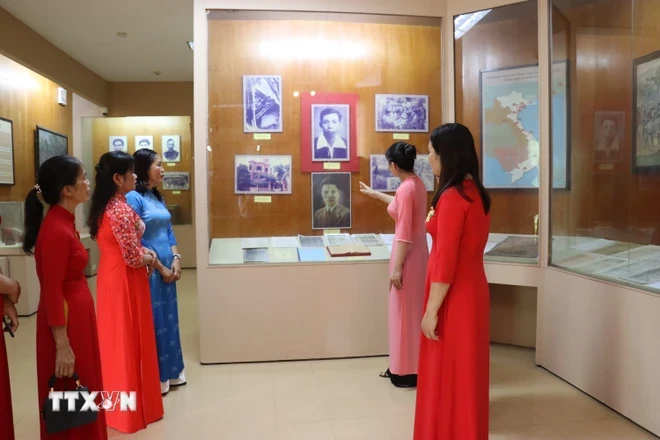
After surveying the actual situation and discussing with comrades in the Executive Committee, he drafted the Party's Political Platform document right in the basement of house number 90 Tho Nhuom street, Hanoi.
The political platform applied the principles of Marxism-Leninism on the national and colonial issues, along with the basic arguments in the Brief Platform and Brief Strategy drafted by Leader Nguyen Ai Quoc and approved at the Party's founding conference.
The main content of the Political Platform is the basic issues of strategy and tactics of the Vietnamese revolution. In particular, the goal of moving towards communism is clearly stated after completing the bourgeois democratic revolution.
The political platform also pointed out the close connection between the anti-feudal and anti-imperialist struggles, between the two goals of "land revolution" democracy and "completely independent Indochina" nation to move towards socialism.
This is a consistent thesis in the Party's revolutionary line, demonstrating the consistency in the Party's revolutionary path and goals since its establishment. These theses have affirmed the correctness of the Party's revolutionary line from the beginning - that is the decisive factor for the victory of the Vietnamese revolution.
In October 1930, at the first Conference of the Party Central Committee held in Hong Kong (China), comrade Tran Phu presented the draft of the Party's Political Platform and it was unanimously approved by the Conference.
At the Conference, with the election of the official Central Executive Committee, the Party was organizationally strengthened for the first time. Comrade Tran Phu was elected as the first General Secretary of the Party.
The success of the Conference marked the Party's maturity in many aspects with strong prestige and attraction, contributing to promoting the rapid development of the Indochinese revolutionary movement.
The first General Secretary of the Party, who made great contributions to Party building work
As the first General Secretary, Comrade Tran Phu made great contributions to Party building in terms of politics, ideology and organization.
In the context of fierce enemy terror, comrade Tran Phu - in his position as the first General Secretary of the Party, together with the Central Executive Committee led the implementation of the Resolutions of the First Central Conference with a huge and important workload and prepared documents for the Second Conference of the Party Central Executive Committee (March 1931).
The resolution of the second Central Conference is a document that highlights comrade Tran Phu's contributions to Party building theory.
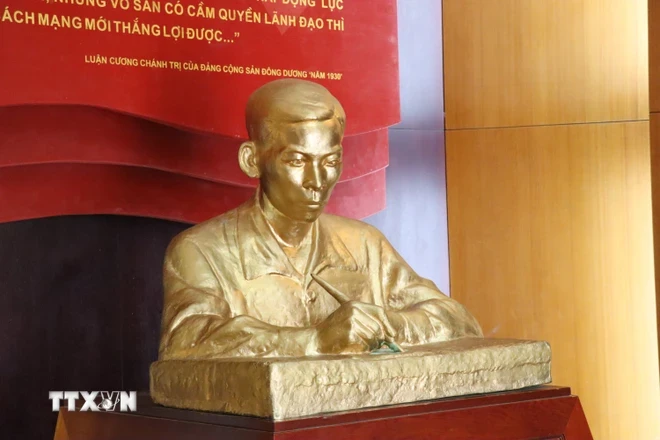
Comrade Tran Phu led the development of party organizations, political organizations, unions, and mass associations to gather and unite all people's forces under the leadership of the Party. A series of important documents were passed directly related to party organization, mass mobilization, and front work, laying the foundation for the establishment of the Anti-Imperialist Alliance, and the establishment of organizations: Labor Unions, Farmers' Associations, Youth Unions, Women's Unions, and Red Relief Associations. After only a short time, party organizations, unions, and mass associations developed rapidly.
In order to build a united bloc on the basis of the Party's platform and guidelines, General Secretary Tran Phu paid great attention to the issue of ideological struggle within the Party, overcoming distorted perceptions, opportunism, and factionalism, and pointing out problems arising from opportunism and conciliatory tendencies within the Party.
To promote political and ideological propaganda and education for cadres and party members, in December 1930, he and the Central Standing Committee decided to publish the Proletarian Flag and Communist newspapers; and established a Propaganda Department headed by a member of the Central Standing Committee.
Upholding the principles in building a new-style working-class Party in terms of ideology and organization, proposing issues to improve the Party's capacity and fighting power through strengthening the working-class character, and resolutely fighting against opportunism are valuable theoretical contributions and practical guidance of Comrade Tran Phu to the task of building the Party in a small-scale agricultural country like ours. Today, these viewpoints are still topical issues in Party building work.
Comrade Tran Phu and the Central Executive Committee built and consolidated party organizations at all levels from the Central to the regional, provincial, district and grassroots party cells.
Thanks to the tireless efforts of comrades and the Central Standing Committee, from December 1930 to January 1931, the Southern, Central and Northern Regional Party Committees were officially established and gradually consolidated. Under the direction of the Central Committee, the Regional Party Committees established executive committees and specialized departments. Thanks to that, the Party was consolidated quite firmly even in the context of being severely and fiercely terrorized by the enemy.
The task of building and promoting the role of party cells was highly focused on by comrade Tran Phu and the Central Executive Committee. Thanks to that, the number of party cells and party members increased significantly. If when the Party was first established, the whole Party had about 30 cells with 200 party members, then before the 2nd Central Conference (March 1931), the number of party members in the whole Party had reached 2,400, operating in 250 cells.
Assessing the great contribution of comrade Tran Phu in the work of Party building, the Central Executive Committee affirmed: “As the first General Secretary, Tran Phu made great contributions to the building of the Party in terms of politics, ideology and organization. He took advantage of all conditions to equip cadres and party members with Marxist-Leninist theory, resolutely fighting to overcome childish leftist and rightist manifestations in the Party.
He devoted much effort to building and consolidating the organization, perfecting agencies from the central to the regional committees and party chapters, especially in important areas that were oppressed by the enemy.
“Keep up the fighting spirit”
While the Vietnamese revolutionary movement was making new developments, on the morning of April 18, 1931, at the Party's printing agency, house number 66 Sampannho Street (now Ly Chinh Thang Street, District 3, Ho Chi Minh City), General Secretary Tran Phu fell into the enemy's net.
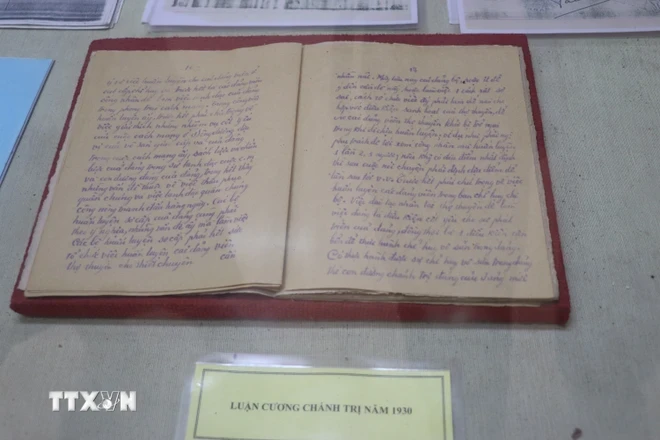
This is a huge loss for the Party and the Vietnamese revolution, which is in the period of recovery, consolidation and development.
Despite all the brutal torture and seductions of the enemy, General Secretary Tran Phu did not submit. The torture of the executioners and the brutality of the imperialist prison regime weakened Comrade Tran Phu's health, his old illness relapsed, and he died on September 6, 1931 at Cho Quan Hospital in Saigon.
Before his death, comrade Tran Phu told his comrades: "Keep up your fighting spirit!"
That message has become a revolutionary slogan, a fighting order, motivating and encouraging generations of party members, compatriots and comrades to maintain their faith, overcome difficulties, hardships and fierceness, and resolutely fight to the final victory of the revolution.
He heroically sacrificed his life at the age of 27, after nearly a year in the position of General Secretary of the Party, but his contributions to the Party and our nation were immense, contributing significantly to building the initial ideological, political and organizational foundation of our Party.
He was an example of loyalty to the country, filial piety to the people, dedicating his whole life to the cause of national liberation and class liberation with strong will and belief in communist ideals and in the ultimate victory of the revolution.
Speaking at the workshop held on April 16, 2024, on the occasion of the 120th anniversary of General Secretary Tran Phu's birthday, Politburo member, Director of the Ho Chi Minh National Academy of Politics, Chairman of the Central Theoretical Council Nguyen Xuan Thang emphasized: The life, glorious revolutionary career and great contributions of comrade Tran Phu are precious legacies, woven into the glorious golden history of the Party. His example of revolutionary morality and the noble, steadfast and indomitable spirit of a communist soldier will forever shine, for generations of cadres, party members and people of all walks of life to learn and follow./.
https://www.vietnamplus.vn/tran-phu-tong-bi-thu-dau-tien-cua-dang-nguoi-con-uu-tu-cua-dan-toc-post942069.vnp
Source


![[Photo] Hanoi morning of October 1: Prolonged flooding, people wade to work](https://vphoto.vietnam.vn/thumb/1200x675/vietnam/resource/IMAGE/2025/10/1/189be28938e3493fa26b2938efa2059e)
![[Photo] Keep your warehouse safe in all situations](https://vphoto.vietnam.vn/thumb/1200x675/vietnam/resource/IMAGE/2025/10/1/3eb4eceafe68497989865e7faa4e4d0e)

![[Photo] President of the Cuban National Assembly visits President Ho Chi Minh's Mausoleum](https://vphoto.vietnam.vn/thumb/1200x675/vietnam/resource/IMAGE/2025/10/1/39f1142310fc4dae9e3de4fcc9ac2ed0)


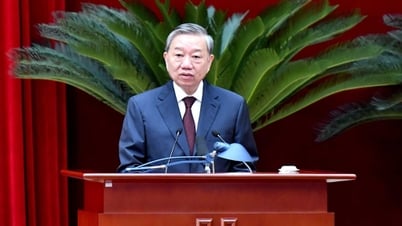


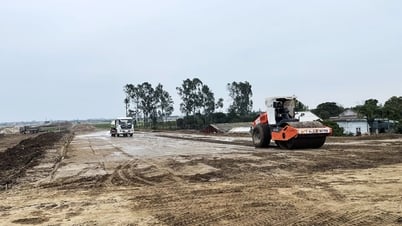


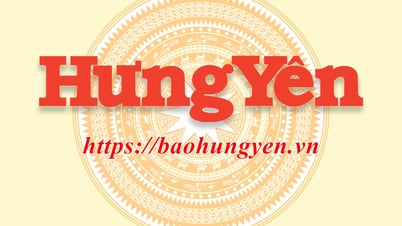


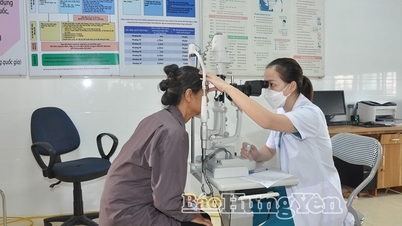
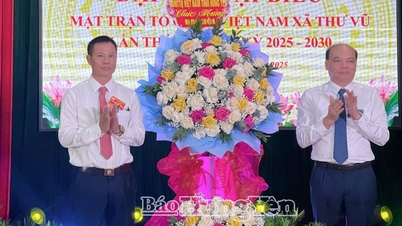
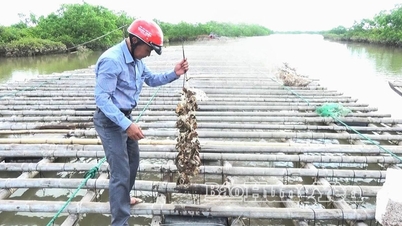

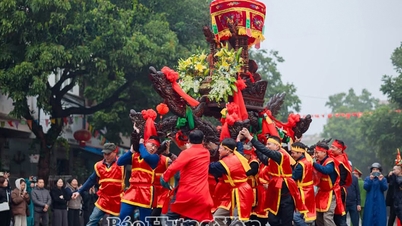





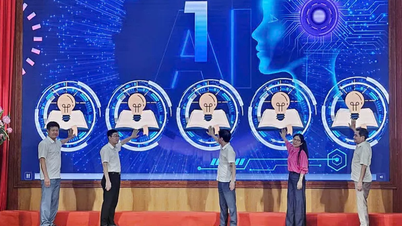

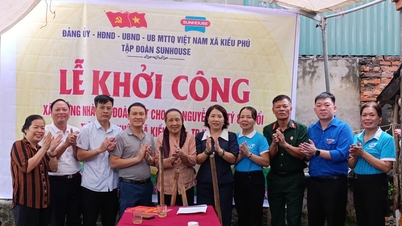
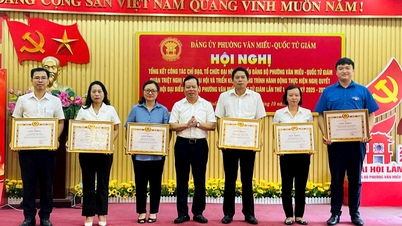
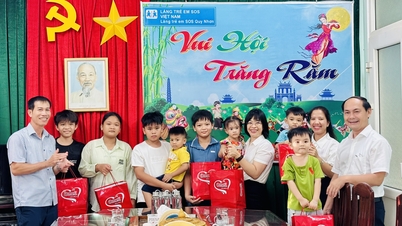

































































Comment (0)